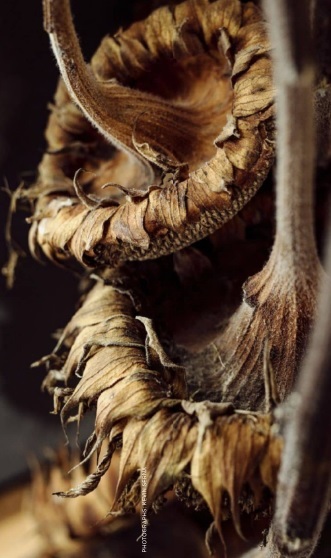
"EVERY TIME AN INDIGENOUS PERSON plants a seed, that is an act of resistance, an assertion of sovereignty, and a reclamation of identity," Rebecca Webster tells me as she shimmies her spoon between rows of kernels in shades of lilac, plum, and bone. When hulled correctly, the corn makes a satisfying pop! pop! pop! sound like Orville Redenbacher's. I'm new to this, though, so my kernels go flying all over her kitchen-to the delight of Rebecca's three rambunctious dogs. Her husband, Steve, is armed with a small metal thresher that strips the cobs in seconds flat. "He's just showing off," she says, rolling her eyes.
The Websters are citizens of the Oneida Nation. They recently transformed their 10-acre homestead on the Oneida Reservation near Green Bay, Wisconsin, into a nonprofit. In addition to growing several varieties of heirloom Haudenosaunee corn, beans, and squash (collectively known as the three sisters), as well as sunflowers, sunchokes, and tobacco, they're on a mission to turn their farm, Ukwakhwa: Tsinu Niyukwayay^thoslu (the name means "Our foods: where we plant things"), into a place where Oneida community members and nontribal people gather to learn the ins and outs of planting, growing, and harvesting Native foods.
The project has been a long time coming. When the Websters acquired this land, in 2017, the soil was in bad shape and littered with plastic barrels and thousands of old tires. Over the next six years, they restored three acres of forest and turned another acre into a pollinator habitat. They built a beautiful house from scratch, reinforcing the basement ceiling so it could handle the weight of the braids of corn above. Most important, they planted seeds.
Esta historia es de la edición April 2023 de Condé Nast Traveler US.
Comience su prueba gratuita de Magzter GOLD de 7 días para acceder a miles de historias premium seleccionadas y a más de 9,000 revistas y periódicos.
Ya eres suscriptor ? Conectar
Esta historia es de la edición April 2023 de Condé Nast Traveler US.
Comience su prueba gratuita de Magzter GOLD de 7 días para acceder a miles de historias premium seleccionadas y a más de 9,000 revistas y periódicos.
Ya eres suscriptor? Conectar

ANCIENT WAY
The vivid colors and patterns typical of robes in Benzilan A centuries-old trading route through China's Yunnan Province unlocks a land of rice paddies and teahouses where tradition persists in the face of modernity's relentless push

ROLLING ON THE RIVER
With the launch of Viking Mississippi, American cruising enters its next chapter

HOLD THAT THOUGHT
At a big-hearted temple retreat in rural Japan, Zen rituals fused with mindfulness practices teach Kate Crockett to be more present

be cool
Outside the summer months, Lake Como hums with a slower, more local rhythm. Now travelers re getting wise to the appeal of the legendary Italian vacation spot in all seasons

BLUE ORIGIN
At a retreat on Costa Rica's Papagayo Peninsula, one of the world's longevity hot spots, Maria Yagoda remembers the importance of living well

CITY OF DREAMS
On the ever-shifting banks of the Mississippi River, French, Spanish, Haitian, and African influences have shaped the contours of modern New Orleans, that singular mecca of jazz, jambalaya, and Mardi Gras. Now, 20 years after the destruction wrought by Hurricane Katrina, Crescent City resident Leslie Pariseau finds a complex but resilient community where no idea is too far-fetched

CUTE COUPLE
Japan's long-standing romance with Italian food is playing out in inventive ways all over Tokyo

TECH SUPPORT
With cutting-edge treatments increasingly jostling for space with traditional therapies, Kelsey Eisen ponders our recent obsession with all things science-backed

IN GOOD COMPANY
For Jen Murphy, a group hiking retreat in the California desert shows that community and connection are cornerstones of a healthy life

IN BLOOM
Just off the beaches of southern Sri Lanka, a design-forward lifestyle district is flourishing Just off the beaches of southern Sri Lanka, a design-forward lifestyle district is flourishing
